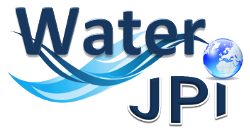Newsletter June 2020
Collaborations:
Dr Mamohloding Tlhagale – WRC – South Africa
Mr Jay Bhagwan – WRC – South Africa
Ms Khosi Jonas – WRC – South Africa
Dr Chantal Ramcharan-Kotze – WRC – South Africa
Osman Tikansak – FORMAS – Sweden
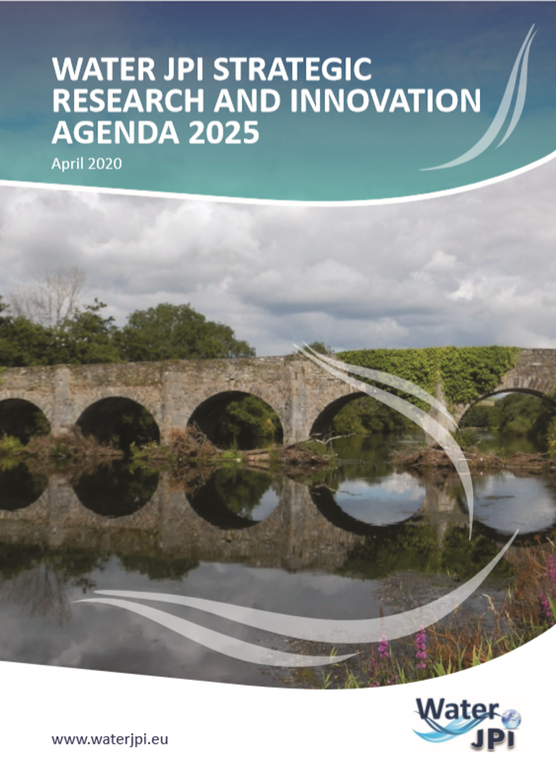
SRIA 2025
This new Strategic Research and Innovation Agenda for the Water JPI will guide the activities over the next 5 years. It details each of the core themes that will in turn form part of an Implementation Plan with descriptions of tasks and indicators.
The SRIA, which sits under the Water JPI Vision, is a roadmap for future water-related RDI actions in Europe, including, but not limited to, the Water JPI actions. It sets out specific RDI research themes, sub-themes and priorities. It also ...
The SRIA, which sits under the Water JPI Vision, is a roadmap for future water-related RDI actions in Europe, including, but not limited to, the Water JPI actions. It sets out specific RDI research themes, sub-themes and priorities. It also identifies areas where RDI actions are required. The identified research priorities are openly accessible to various stakeholders, such as researchers, regulatory agencies, policymakers, industry and the public.
The Water JPI SRIA 2025 core research themes are Ecosystems, Health and Wellbeing, Water Value and Usage and Sustainable Water Management. This new Strategic Research and Innovation Agenda for the Water JPI will guide the activities over the next 5 years. It details each of the core themes that will in turn form part of an Implementation Plan with descriptions of tasks and indicators.
The SRIA 2025 makes a direct contribution in addressing the needs of the United Nations (UN) Sustainable Development Goals (SDGs), in particular the UN SDG 6 (“Ensure availability and sustainable management of water and sanitation for all”), and the European Green Deal, while developing European Union (EU) and international cooperation to join efforts to solve the global challenges on water.
As part of the process to update the Water JPI’s Strategic Research and Innovation Agenda (SRIA) 2025 between 2019 and early 2020, synergies were identified between the Water JPI SRIA Sub-themes and Research Priorities and the core theme/research areas of other initiatives and their SRIAs/SRAs (Strategic Research Agendas). Together these can contribute to tackling the societal challenges also being addressed by other initiatives.
To read more about the SRIA 2025 and the Synergies Between The Water Jpi and Other Relevant Initiatives Click Here.
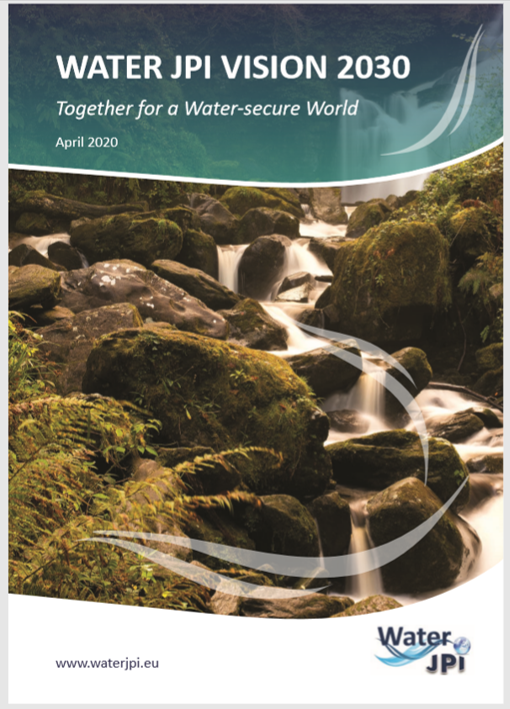
Water JPI Vision 2030 document
The Water JPI Vision 2030, “Together for a Water-secure World”, outlines what the Water JPI aims to achieve during the next 10-year period (until 2030) and sets out the roadmap for all Water JPI activities taking into account the main trends, the key drivers and challenges in relation to our water resources.
The Water JPI Vision 2030, “Together for a Water-secure World”, outlines what the Water JPI aims to achieve during the next 10-year period (until 2030) and sets out the roadmap for all Water JPI activities taking into account the main trends, the ...
The Water JPI Vision 2030, “Together for a Water-secure World”, outlines what the Water JPI aims to achieve during the next 10-year period (until 2030) and sets out the roadmap for all Water JPI activities taking into account the main trends, the key drivers and challenges in relation to our water resources.
The Vision 2030 will reinforce global leadership in water research and foster collaboration to achieve safe, clean and sustainably managed water resources for all. This will be achieved using a multi-faceted and cross-sectoral approach that encompasses policy, environmental, economic, technological and societal considerations.
It is first in the hierarchy of the Water JPI’s activities and provides the context for further activities (i.e. trends, drivers and challenges) in responding to the issues faced by Europe and increasingly at a global level.
This Vision 2030 document includes:
■ an overview of the key water challenges;
■ an overview of water-related policy and recent developments;
■ an overview of key cross-cutting issues, drivers and enablers that drive change and apply across all areas of research;
■ the four key research themes being addressed by the Water JPI; and
■ objectives and indicators to measure the effectiveness of the Water JPI and its activities.
Click here to read more about the Vision 2030 document, Download the full content of the document and the Vision 2030 infographics.
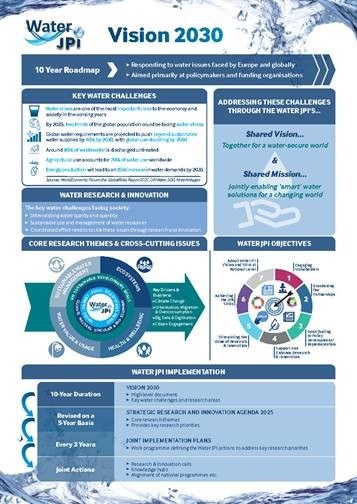
Water Joint Programming Initiative Launches its new Vision 2030 and SRIA 2025
At the occasion of its 16th Governing Board Meeting in May 2020, the Water Joint Programming Initiative (JPI) (visit the Water JPI website) launched its new 10-year Vision 2030, and five-year Strategic Research and Innovation Agenda (SRIA) 2025. ...
At the occasion of its 16th Governing Board Meeting in May 2020, the Water Joint Programming Initiative (JPI) (visit the Water JPI website) launched its new 10-year Vision 2030, and five-year Strategic Research and Innovation Agenda (SRIA) 2025. These two important strategic documents were produced by the EPA in collaboration with the Water JPI, following an extensive consultation.
The Water JPI Vision 2030 is an overarching forward-looking roadmap that illustrates what the Water JPI aims to achieve within the next 10 years, taking into account the main trends, key drivers and challenges in relation to our global water resources.
The Water JPI SRIA 2025 is an the five year reference base, highlighting the range and direction of all Water JPI activities, which will be delivered through the Water JPI Implementation Plan. The SRIA 2025 has been developed to guide future water-related research, development and innovation actions. It sets out specific research themes, sub-themes and research priorities. These research priorities can then be considered by various stakeholders, such as researchers, regulatory agencies, policymakers, industry and the public. Four core themes will drive this agenda: (1) Ecosystem, (2) Health and Wellbeing, (3) Water Value and Usage and (4) Sustainable Water Management.
Research gaps and topics, as well as the means of implementation (e.g. joint actions, via calls or networks.), will be prioritised and further developed by developing an agreed implementation plan, detailing joint actions.
The Water JPI, will act as a facilitator of cooperation between countries on water research, supporting European and international water and environmental policy by coordinating and funding research on existing and the emerging problems to come up with feasible solutions.
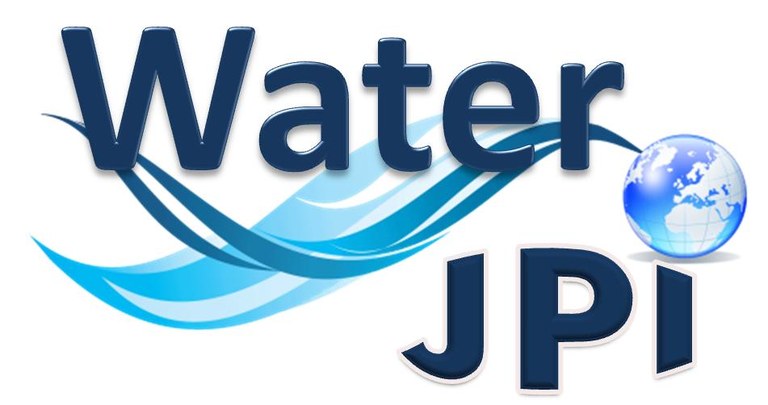
Water JPI Governing Board
The Water JPI Governing Board met online on May 14, 2020 for the 16th Governing Board meeting. Eighteen countries (out of twenty-three full members) were represented at the meeting, which mainly focused on the Water JPI sustainability and the Role ...
The Water JPI Governing Board met online on May 14, 2020 for the 16th Governing Board meeting. Eighteen countries (out of twenty-three full members) were represented at the meeting, which mainly focused on the Water JPI sustainability and the Role of Initiative under Horizon Europe, including a structured discussion on the Water4All partnership. This discussion was preceded by a presentation from the European Commission DG RTD on the state of play of the ninth Framework Programme. Governing Board members were invited to vote online on important issues during the meeting, which allowed to take crucial decisions for the future of the Water JPI.
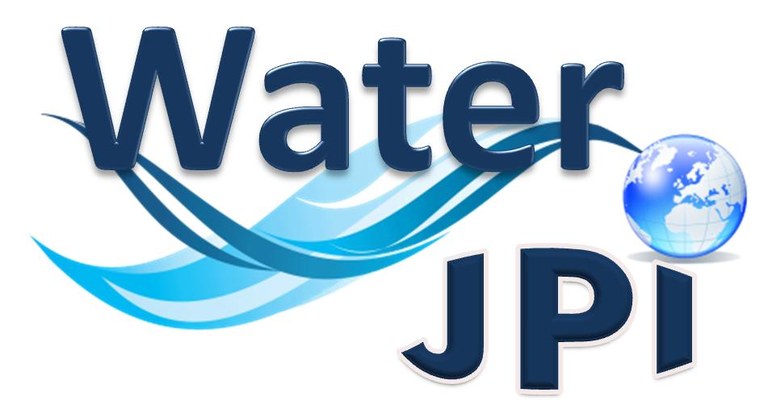
Water JPI Advisory Boards
The Water JPI Advisory Boards met on the 5th of March 2020 in Brussels (Belgium), at the South African Embassy.
The Advisory Boards (ABs) meeting gathered seven institutions involved in the Stakeholders Advisory Group (SAG) and eight experts ...
The Water JPI Advisory Boards met on the 5th of March 2020 in Brussels (Belgium), at the South African Embassy.
The Advisory Boards (ABs) meeting gathered seven institutions involved in the Stakeholders Advisory Group (SAG) and eight experts involved in the recently renewed Scientific and Technological Board (STB).
The items discussed during the meeting included i) the development of the Water4All Partnership candidature for Horizon Europe and the role of the Water JPI in this Partnership if accepted by the European Commission and the Member States, and ii) the options for knowledge transfer.
The ABs provided their recommendations on:
- The PRO and CONS of the different knowledge transfer instruments,
- The process for the composition of the Knowledge Hub (KH) seed group and its possible role for defining the KH content or enlarging the KH if needed.
This meeting was also the occasion to officially nominate Yolanda Pico and Sylvester Mpandeli respectively as Deputy Chair and Chair of the STB. The online booklet presenting the members of the STB and SAG is available here.
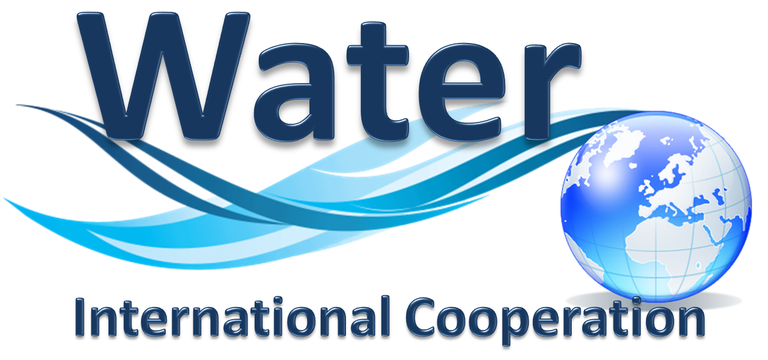
IC4WATER – Workshop on Future Cooperation in Research and Innovation with countries beyond Europe
The IC4WATER workshop on international cooperation held on 4 December 2019 in Lisbon aimed at exchanging with peer international institutions interested in joint initiatives on a voluntary basis, in order to increase the value of relevant Research ...
The IC4WATER workshop on international cooperation held on 4 December 2019 in Lisbon aimed at exchanging with peer international institutions interested in joint initiatives on a voluntary basis, in order to increase the value of relevant Research and Development funding through joint planning.
Built on the previous workshops with European initiatives and researchers, this workshop targeted funders beyond the EU. It was attended by 40 participants representing international funding agencies, international initiatives (PRIMA, CEWP, Belmont forum) and the water Economic Sector aiming to collect their views to better understand the difficulties faced in participating in JPI activities, to propose models for further cooperation with different types of partners, and how to deal with different requirements from the economic sector.
Download the Workshop Programme
Download the Workshop Master Presentation
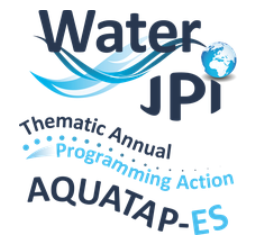
AquaTAP_ES - Workshop 2
The second AQUATAP_ES workshop took place in Brussels on 19 November 2019 with 13 attendees from the various projects and the Water JPI community. Our Dutch colleagues hosted the workshop in their offices in Brussels. This workshop focused on ...
The second AQUATAP_ES workshop took place in Brussels on 19 November 2019 with 13 attendees from the various projects and the Water JPI community. Our Dutch colleagues hosted the workshop in their offices in Brussels. This workshop focused on discussing the relevant and appropriate stakeholders for mapping the impact of AQUATAP-ES TAP, and appropriate methods to communicate the outputs of AQUATAP-ES TAP. The main aims of this workshop was to identify ways of translating the Ecosystem Approach into policy and practice, generating a suitable knowledge transfer and communication/dissemination strategy for different target stakeholders.
The group concentrated on means of mapping and measuring the impact of the AQUATAP-ES TAP, short, medium and long term. Following on with work relating to the translation of the ecosystem approach and best practice, such as illustrated by the Netherlands example. Also identifying key stakeholders, generating a policy brief that is relevant to particular audiences (again looking at best practice such as MARS project and BiodivERsA policy briefs) and creating linkages and collaboration with existing initiatives critically not duplicating work but finding the network’s own unique message and identity.
This 2nd workshop is a positive development in the activities in the AQUATAP_ES, moving forward into an operational phase where the network participants will co-develop outputs, impacts and linkages with other initiatives and stakeholders to ensure the message of the importance of Ecosystems Services is central to policy and can be practically applied on the ground to make a real impact.
The 3rd workshop scheduled on June 16th 2020 will take place virtually due to the Covid-19 situation.
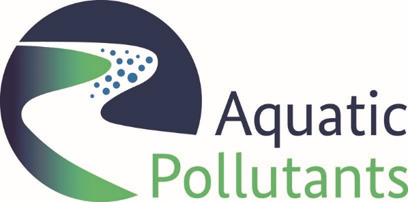
Strong interest for the AQUATICPOLLUTANTS Joint Transnational Call
184 pre-proposals involving 1065 partners were submitted by closing date, totalling a sum of 179.5 M€ in requested funding.
In February 2020 the three Joint Programming Initiatives (JPIs) on Water, Oceans and Antimicrobial Resistance (AMR) in collaboration with the European Commission launched the AquaticPollutants joint transnational call for research and innovation ...
In February 2020 the three Joint Programming Initiatives (JPIs) on Water, Oceans and Antimicrobial Resistance (AMR) in collaboration with the European Commission launched the AquaticPollutants joint transnational call for research and innovation projects on risks posed to human health and the environment by pollutants and pathogens present in the water resources. In the call 26 countries are pooling resources of about 24.2 M€.
Research & innovation proposals were invited to respond to at least one of the themes outlined in the call. The table below gives an overview of the themes addressed in the project proposals:
|
Theme |
Proposals |
|
Theme 1 – Measuring |
77 Total requested funding of 75.2 M€ |
|
Theme 2 – Evaluating |
41 Total requested funding of 42.3 M€ |
|
Theme 3 – Taking Actions |
66 Total requested funding of 61.9 M€ |
Pre-proposals passing the eligibility check and national regulations will be forwarded to the evaluators for a scientific assessment based on two criteria - ‘Excellence’ and ‘Impact’. The best pre-proposals will be invited by the Call Secretariat to proceed to the submission of the full proposal.
To read more about the Eligibility Criteria and evaluation procedures, please download the Call Announcement HERE.
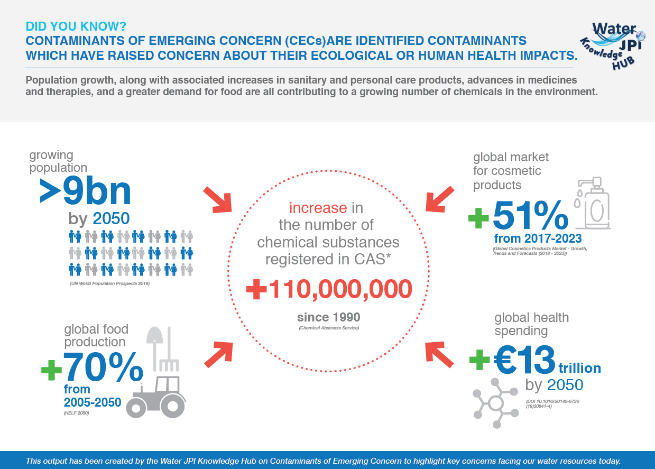
Water JPI Knowledge Hub on Contaminants of Emerging Concern (KHCEC)
The Water Joint Programming Initiative (JPI) set up the 1st pilot Knowledge Hub on Contaminants of Emerging Concern (KHCEC) in March 2018, for a two year period. The aim of the Water JPI Knowledge Hub was to build a network for selected researchers whose work is targeted at key stakeholders and how best to successfully transfer this knowledge.
The Water Joint Programming Initiative (JPI) set up the 1st pilot Knowledge Hub on Contaminants of Emerging Concern (KHCEC) in March 2018, for a two year period. The aim of the Water JPI Knowledge Hub was to build a network for selected researchers ...
The Water Joint Programming Initiative (JPI) set up the 1st pilot Knowledge Hub on Contaminants of Emerging Concern (KHCEC) in March 2018, for a two year period. The aim of the Water JPI Knowledge Hub was to build a network for selected researchers whose work is targeted at key stakeholders and how best to successfully transfer this knowledge. This network of 23 scientists from across the globe, led by Prof Norbert Kreuzinger as Scientific Coordinator TU Vienna, established a critical mass of research and technological excellence, by integrating and sharing of knowledge, in addition to improving communication and networking between stakeholders and the scientific community. The network co-developed a number of significant outputs – Stakeholder Briefing, policy briefs and Infographics on CECs aiming to heighten awareness of CECs and their impact on our environment and health in the member states. The network worked to transfer this knowledge from ‘science to society’, via numerous outreach campaigns, press releases, policy briefs, infographics, and social media to the public, industrial sectors and policy makers and engaged in dissemination activities for achieving its primary goal of knowledge transfer.
Water JPI’s pilot KHCEC came to an end in February 2020. The Steering Committee of the KHCEC had a final evaluation meeting, held online on March 25, 2020 to bring forward recommendations for the future knowledge hub activities of Water JPI. The general opinion was that the KHCEC performed well in terms of generating outputs and organizing workshops to identify knowledge gaps and translate new knowledge for the interested parties in the area of contaminants of emerging concern. It is recommended that future knowledge hubs should be as inclusive as possible by engaging in collaboration with diverse stakeholders.
Some key outputs from the KHCEC network:
- Water JPI Knowledge Hub on CECs Stakeholder Brief“Continuous increase of CECs in the anthroposphere as a stressor for water resources” – January 2020 – for download from here
This briefing document forms part of the current Water / Oceans /AMR JPIs Transnational Call on AquaticPollutants.
- Three key infographics on CECs:
- Educational Infographics on CECs (for society)
- Water JPI KHCEC infographic for society: Did you know? Introducing CECs and our water resources.
- Water JPI KHCEC infographic for industry: The challenge - Implementing priority actions to address CECs.
- Other outputs from the KHCEC available to download
- Download the second Policy Brief “Contaminants of Emerging Concern (CECs) – an emerging risk in our waters”from here.
- Download the “Who is Who”of international researchers involved in the Water JPI Knowledge Hub on CECs from here.
Download the first Policy Brief “What is contaminating our waters next? Contaminants of Emerging Concern (CECs) – novel ways to reduce their human and environmental risks” from here.
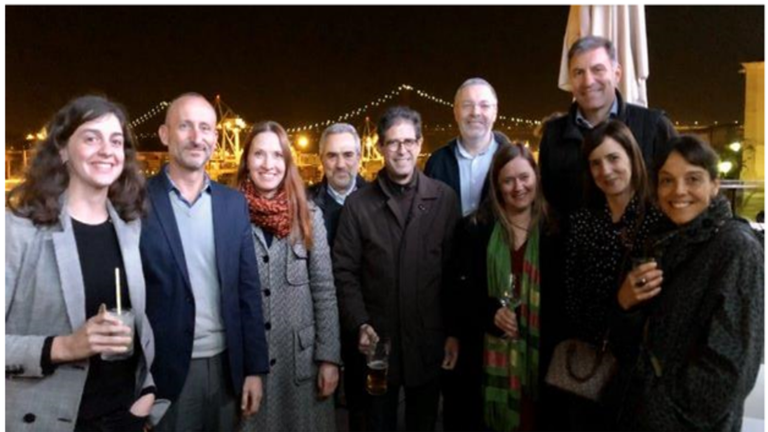
Knowledge Hub on UN SDGs kick-off
The 2nd Water JPI Knowledge Hub on UN SDGs kicked-off on the 3rd of December 2019 in Lisbon and was the first opportunity for the for the selected Seed Group to meet. By the end of the workshop, the participants had gathered a pool of exciting ...
The 2nd Water JPI Knowledge Hub on UN SDGs kicked-off on the 3rd of December 2019 in Lisbon and was the first opportunity for the for the selected Seed Group to meet. By the end of the workshop, the participants had gathered a pool of exciting ideas, which will be evaluated to further develop the thematic scope of the KH and its implementation plan. It was agreed that the first output of the Seed Group should be a policy brief that will be supplemented by scientific outcomes and deliver clear-cut policy recommendations addressing international cooperation challenges associated with achieving SDGs related to water. Roberto Deidda (University of Cagliari, Italy) was chosen as the Scientific Coordinator of the KH and he will be assisted by Kevin McGuigan (Royal College of Surgeons, Ireland) in this task. Finally, the attendees agreed on the acronym “WATER4SDGs”, which reflects the SDGs approach of the second Water JPI Knowledge Hub.
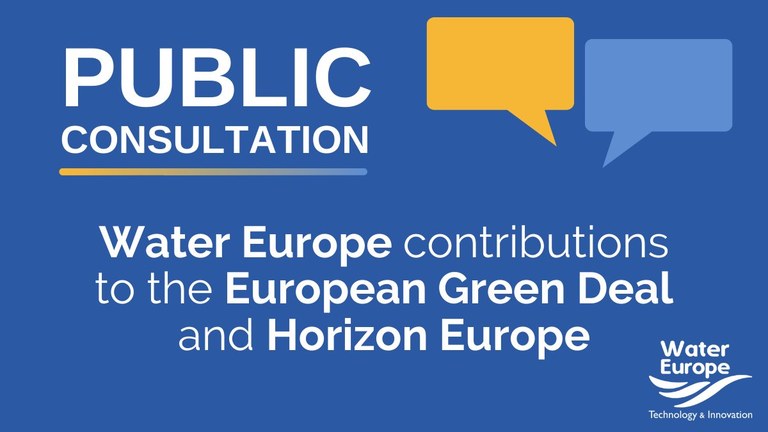
Water Europe launches Online Public Consultation
Water Europe is pleased to launch an online public consultation whose results will be used to finalise the document that aims to support those who are engaged and responsible to develop contents and mechanisms of the European Green Deal and Horizon Europe, to identify the key water-related research and development needs.
Water security is an integrated part of all major challenges and opportunities for Europe to lead the way towards a sustainable future, as targeted by the European Commission’s new Green Deal policy. Water Europe is currently developing a new ...
Water security is an integrated part of all major challenges and opportunities for Europe to lead the way towards a sustainable future, as targeted by the European Commission’s new Green Deal policy. Water Europe is currently developing a new publication titled 'Water Europe contributions to the European Green Deal and Horizon Europe' to stress how the WE Vision and SIRA relate to and feed the renewed European strategies and policies, with a strong focus on the European Green Deal and the Horizon Europe.
Water Europe is pleased to launch an online public consultation whose results will be used to finalise the document that aims to support those (EC and other EU Institution officers, researchers and innovators from private and public organisations, NGOs and CSOs, MS committees and advisory boards) who are engaged and responsible to develop contents and mechanisms of the European Green Deal and Horizon Europe, to identify the key water-related research and development needs.
Water Europe invite all the water sector’s stakeholders to have their say on the document by providing their valuable feedback until May 18, 2020.
Water Europe's new publication will be launched at the digital edition of Water Innovation Europe 2020 conference, 22-26 June 2020.
The contact point for questions related to the public consultation is Mr. Andrea Rubini, Water Europe Director of Operations.
Click here to start the questionaire.
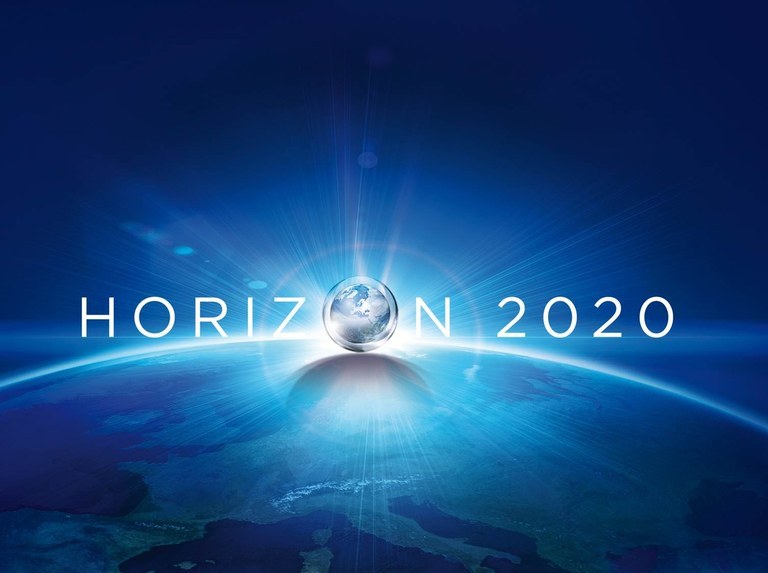
Horizon 2020 - Research & Innovation Projects relevant to Water research
The European Union, through successive framework programmes for research and innovation, is supporting collaborative R&I projects in the area of water. Projects span from fundamental research to innovation actions including pilots and demonstration cases as well as training and capacity building activities.
The current Framework Programme for Research and Innovation Horizon 2020 (2014-2020)1 adopted a decentralised approach addressing three priorities: excellent science, industrial leadership and societal challenges, in which water research is present ...
The current Framework Programme for Research and Innovation Horizon 2020 (2014-2020)1 adopted a decentralised approach addressing three priorities: excellent science, industrial leadership and societal challenges, in which water research is present at different levels and scales.
The present document aims to provide a quick overview of relevant projects2 co-funded by the European Union in different areas of Horizon 2020 for the period covering 6 years of implementation, from 2014 till 2019. Without pretending to be exhaustive, the current publication includes the description of 255 water relevant projects that will mobilise a total budget close to EUR 1,235 million, of which EUR 1,008 million as EU funding.
This presentation is structured around eight main thematic areas: freshwater and aquatic ecosystems, global water cycle, water management, water and people, water and agriculture, water and industry, water and energy and water governance.
Projects are assigned to different areas in accordance to their main objectives, grouped per topic and then sorted in descending order per project number. However, due consideration should be given to complex and integrated projects with multiple objectives connecting different thematic areas. Clear examples of crosscutting actions could be seen in projects addressing the nexus water-food-energy-climate or synergies between industry and the urban water sector.
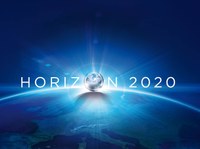
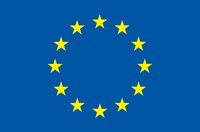
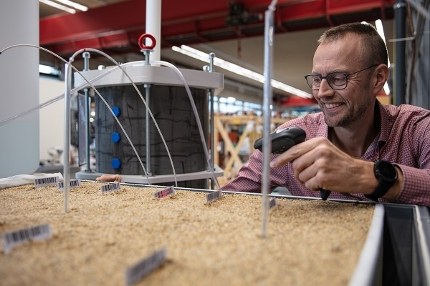
The JPI URBANWAT Project : Water Research for the detection of the coronavirus
A researcher in the UrbanWAT project on urban water management, funded by the Water JPI through the 2018 Joint Transnational Call co-financed by the European Commission under WaterWorks2017 ERA-NET Cofund, has just announced a discovery that might ...
A researcher in the UrbanWAT project on urban water management, funded by the Water JPI through the 2018 Joint Transnational Call co-financed by the European Commission under WaterWorks2017 ERA-NET Cofund, has just announced a discovery that might help in the detection of Covid-19.
The JPI UrbanWAT project is a collaboration between Spanish, French and Dutch groups and aimed at improving tools and criteria for groundwater management in urban areas to ensure the sustainability of urban water resources and define their potential uses, from an integral approach.
In a previous Dutch NWO funded project magnetic micro particles were developed in cooperation with the researchers at the Norwegian University of Science and Technology (NTNU), as a tool to monitor water flows and the spread of pollutants. These micro particles were coated with different DNA barcodes, released into waterstreams and detected downstream by doing PCR on a water sample.
Within UrbanWat the step from macro to nano-particles was made by the Dutch UrbanWAT partners, Delft University, together with NTNU who had the expertise on developing these particles. The new nano-particles were then applied in different conditions for monitoring urban groundwater flows in collaboration with the Spanish and French partners.
While developing these new particles a problem was encountered. One of the new particles did not bind well to DNA, which was essential for this monitoring method. Instead it bound really well to RNA. Normally this would be a fail, but not in this case. It was quickly realized that this property could help in the detection of SARS-CoV-2, the RNA virus that causes COVID-19. And indeed in tests the use of this new nano-particle led to a more sensitive detection of the virus than with existing kits. Production of the particle has been scaled up in Norway.
And so an international collaboration to research water streams has led to an improved method for detecting a virus that caused a pandemic.
To understand more about this research, read more.
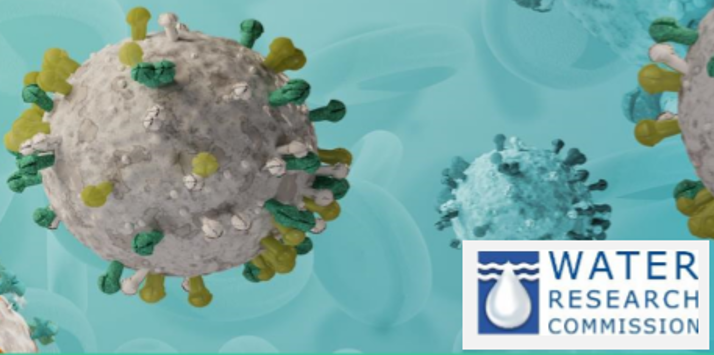
The Water Research Commission launch a programme to monitor the spread of covid-19 in communities using a water and sanitation-based approach
On 20 May 2020, the Water Research Commission of South Africa launched a special programme on surveillance of COVID 19 in wastewater, sanitation and health that will be using sanitation-based approaches. The programme supports the South African ...
On 20 May 2020, the Water Research Commission of South Africa launched a special programme on surveillance of COVID 19 in wastewater, sanitation and health that will be using sanitation-based approaches. The programme supports the South African government’s effort and interventions aimed at curbing the spread of COVID -19 such as rapid identification, testing and isolation of symptomatic people for treatment, tracing of contact cases and regular issuing of regulations on travel and social distancing and the recent community-wide COVID-19 testing initiative.
The surveillance programme is aimed at facilitating knowledge sharing, stimulating research and innovations on water quality, sanitation and health and the programme objectives will be achieved through the following initiatives:
- Pilot and full-scale implementation of wastewater surveillance as a non-invasive approach for monitoring the spread of COVID-19 in communities.
- Research work and capacity building on COVID-19 in relation to water and sanitation and health.
- Knowledge dissemination through webinars and workshops.
The programme will be implemented in three phases, the first being the establishment of the proof of concept of presence of COVID-19 in wastewater and sanitation samples, as well as establishing sample collection and testing protocols so that monitoring results can be reliable and compared. The second phase will establish wider capacity of laboratories in South Africa and put into operation more communities into surveillance. This will be followed by the final phase facilitating the establishment of a national surveillance scale monitoring activities supported by hotspot mapping.
The expected outputs of the programme are as follows:
- Novel water and sanitation-based approach for the surveillance of COVID-19 spread in less developed communities.
- Real time tracking of COVID-19 spread and resurgence in communities.
- Understanding the fate of the virus in the water, sanitation and wastewater environment.
The successful implementation of the programme will require a collaborative approach including key local and international partnerships. Improving the techniques of wastewater monitoring as a mechanism for the long-term surveillance of COVID-19 in our population and communities will have far reaching impact on our capacity and resources in dealing with the disease. The idea of creating a country-wide GIS based heat map to first act as a triage mechanism to better direct the resources of the Department of Health for on-the-ground testing as a low cost community level indicator is very attractive. It will also play a valuable role in monitoring the progress of the disease and the efficacy of the interventions as part of the long-term surveillance.
Please contact Mr Jay Bhagwan at Jayb@wrc.org.za for more information on the programme or wish to partner with the WRC at any phase of the programme
For the full article click here.
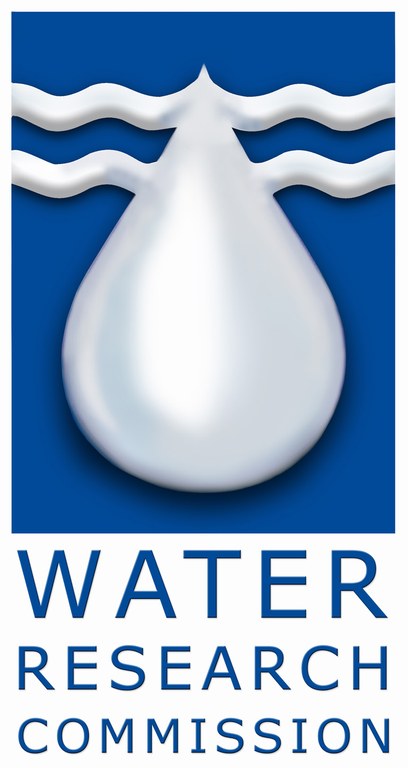
Webinar Summary: Learning and looking beyond the COVID19 crisis – A Water and Sanitation perspective
On Friday, 22nd of May 2020, the Water Research Commission hosted a webinar focused on the Learnings and Opportunities that the COVID-19 crisis has and continues to reveal for the development of water and sanitation provisioning. With the on-set of ...
On Friday, 22nd of May 2020, the Water Research Commission hosted a webinar focused on the Learnings and Opportunities that the COVID-19 crisis has and continues to reveal for the development of water and sanitation provisioning. With the on-set of COVID-19 disaster management, a number of solutions were being deployed in SA including the establishment of a Command Centre with the aim of managing emergency water and sanitation interventions. According to the Department of Human Settlements, Water and Sanitation, bulk of the interventions centered around tankering services, water tanks and health and hygiene materials distribution for rural communities. These interventions were funded by reprioritized grant funding to the amount of R306 534 000. A total of 196 ML of water was delivered between 28 March 2020 and 03 May 2020 with ablution solutions moved to Phase 2. Additional considerations are being given to rudimentary water supply schemes and accelerated implementation to improve access. However, these remain interim if source development options are not considered and alternatives to tanker systems not sought.
Looking Beyond COVID-19
The COVID-19 crisis has made the lack of just transition to more sustainable solutions and services apparent, highlighting the need for urgent action. As South Africa responds to COVID-19 as well as aims to stimulate the economy post-lockdown, an opportunity exists to address many of the water and sanitation challenges in the country. The need to look forward and outline the key water- and sanitation-related initiatives that are critical to supporting South Africa’s socio-economic recovery is evident.
For the full article click here.
Submission of the BiodivRestore COFUND Proposal
The BiodivRestore ERANET COFUND proposal was submitted the 13th of February 2020 to the European Commission, after a preparation process started a few months ago following the publication of the 2020 Work Programme of Horizon2020 in July 2019.
...
The BiodivRestore ERANET COFUND proposal was submitted the 13th of February 2020 to the European Commission, after a preparation process started a few months ago following the publication of the 2020 Work Programme of Horizon2020 in July 2019.
Addressing the topic of “Conservation and restoration of degraded ecosystems and their biodiversity, including a focus on aquatic systems”, it is pooling resources from 34 funding agencies from 27 countries from Europe & other continents.
In addition to the Co-funded joint call for research proposals, the BiodivRestore Cofund Action envisages i) one additional non-Co-funded joint call (which could take different format, including a TAP - thematic annual programming),
ii) supporting networking and clustering activities with other relevant projects to allow for cross-projects collaboration, and
iii) consultations, experience and results sharing along with joint activities on cross-cutting issues.
BiodivRestore should contribute to reinforce the links between BiodivERsA and the WATER JPI, to enhance their collaboration for issues at the crossroad of water resources, aquatic ecosystems and biodiversity sustainable management
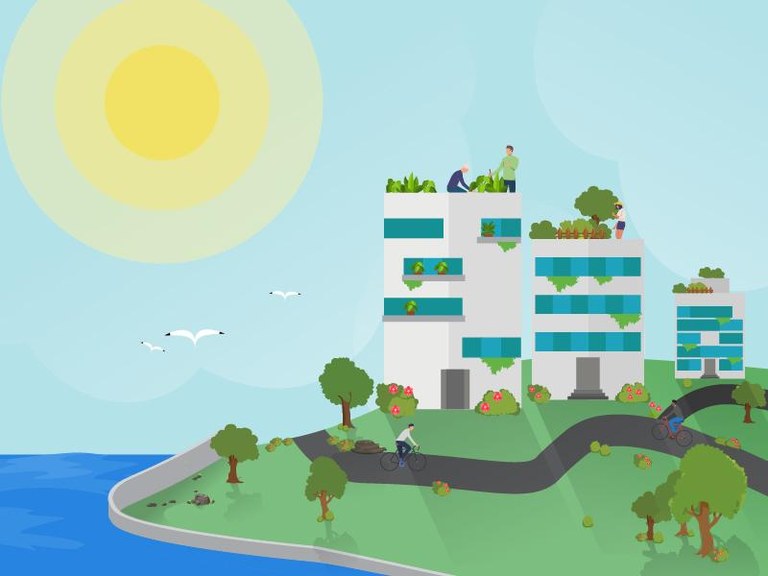
Commission launches online public consultation on new EU strategy on adaptation to climate change
As part of the European Green Deal, the Commission aims to put forward a new Adaptation Strategy in early 2021, building on the current one, which was adopted in 2013.Global and European temperatures have repeatedly broken long-term records in ...
As part of the European Green Deal, the Commission aims to put forward a new Adaptation Strategy in early 2021, building on the current one, which was adopted in 2013.Global and European temperatures have repeatedly broken long-term records in recent years. The last five years were the hottest on record, with heatwaves, droughts and wildfires across Europe.
The online public consultation on the Adaptation Strategy invites contributions from stakeholders and citizens to inform the design of the new strategy. A blueprint for the strategy accompanies the consultation in order to provide context, indicate possible directions of development and stimulate the debate.
The online consultation is now open from 14 May until 20 August 2020.
New rules for water reuse for agricultural irrigation
The EU is taking new measures to reduce the risk of shortages of water for irrigating crops. The Council recently adopted by written procedure a regulation which will facilitate the use of treated urban waste water (reclaimed water) for agricultural ...
The EU is taking new measures to reduce the risk of shortages of water for irrigating crops. The Council recently adopted by written procedure a regulation which will facilitate the use of treated urban waste water (reclaimed water) for agricultural irrigation.
The rules will help Europe adapt to the consequences of climate change. The regulation, which is fully in line with the circular economy, will improve the availability of water and encourage its efficient use. Ensuring that enough water is available for the irrigation of fields, in particular during heatwaves and severe droughts, can help prevent crop shortfall and food shortages.
The regulation now needs to be adopted by the European Parliament at a second reading before it can be published in the Official Journal. Read more.
16th Annual Workshop on Emerging High-Resolution Mass Spectrometry (HRMS) and LC-MS/MS Applications in Environmental Analysis and Food Safety
The main objective of the workshop is to evaluate practical aspects of the usefulness of highresolution mass spectrometry and tandem mass spectrometric techniques for screening and quantitation of organic contaminants in the environmental and food ...
The main objective of the workshop is to evaluate practical aspects of the usefulness of highresolution mass spectrometry and tandem mass spectrometric techniques for screening and quantitation of organic contaminants in the environmental and food samples.
The following practical aspects and state of the art applications will be discussed:
- Advances in HRMS instrumentation and their applicability in environmental and food analysis.
- Advantages, comparison and complementarities of advanced MS instruments (tandem and hybrid) in the quantitative and qualitative determination of complex environmental and food samples.
- Advanced sample preparation technologies for food and environmental analysis including on-line pre-column technology coupled to LC/tandem MS.
- Large number of applications in environmental analysis, basically water and soil/ sediment, biota and food, like fruits and vegetables, juices and meat.
- Broad range of contaminants and their degradates.
This workshop is intended to be an informal venue that encourages an exchange of the latest information and ideas among scientists from academia, governmental agencies and industry.
Important Dates
Abstracts submission: from 20th January to 15th September
Oral acceptance confirmation: 25th September
Early bird registration: from 20th January to 31st July
Late registration: from 1st August
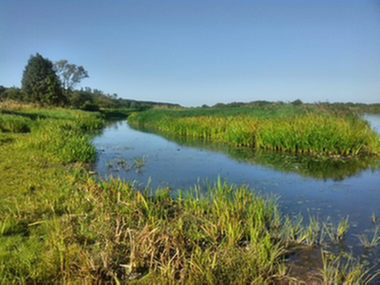
Water challenges in the European Green Deal
Within the context of the Green Deal, EurAqua is organizing a webinar with the focus on nature-based solutions to increase climate resilience to hydrological extremes and to protect, conserve and enhance EU’s natural capital. This webinar will ...
Within the context of the Green Deal, EurAqua is organizing a webinar with the focus on nature-based solutions to increase climate resilience to hydrological extremes and to protect, conserve and enhance EU’s natural capital. This webinar will provide an overview of latest insights on the water challenges and the potential contribution of nature-based solutions to the Green Deal. The webinar will also address the research and innovation challenges and demonstration cases and living labs.
Webinar program
|
10.00
|
Welcome and introduction Anna-Stiina Heiskanen – Chair EurAqua |
|
10:10
|
Green Deal and water research challenges |
|
10:40
|
Nature-based solutions in river basin management |
|
11:10
|
Natural capital to support the European Green Deal |
|
11:40
|
Nature-based solutions as a strategy to meet WFD |
|
12.10
|
Conclusions |
|
12.25-12:30 |
Final remarks and closing |
